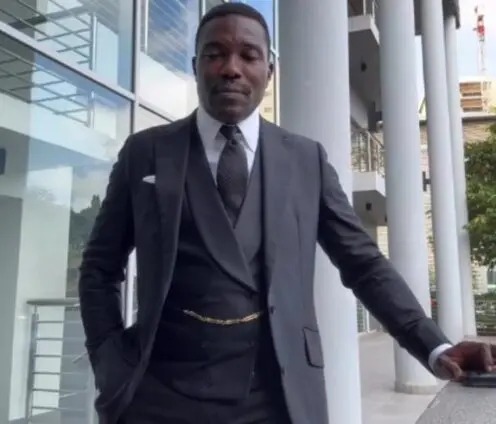Prominent private legal practitioner Kwame Akuffo has faulted the legal proceedings surrounding the recent vacant parliamentary seats saga, particularly highlighting the inconsistencies in the application of legal principles by the Supreme Court.
Kwame Akuffo argues that, the Court’s decision in the case of Alexander Afenyo-Markin’s application for Stay of Execution was not only procedurally flawed but also lacked the necessary legal foundation.
In a detailed opinion piece, Kwame Akuffo stresses the importance of consistency in legal practice, stating, “The importance of consistency in the application of the principles of law is necessary as inconsistency tends to undermine the coherence of the law and generates a mass of disparate special rules distinct from those known under the law.”
He argues that the court’s handling of the case has led to legal contradictions that could set a worrying precedent.
Jurisdictional Overreach and Procedural Errors
Kwame Akuffo’s first point of contention is the very nature of the application itself. According to him, an Application for Stay of Execution can only be made in response to a court order or judgment, and in this case, no such order existed.
The application, he argued, was based on the Speaker of Parliament’s declaration of the seats as vacant, which is not a judicial order. Kwame Akuffo was clear in his assessment: “A party cannot seek an Application for Stay of Execution in respect of a matter which is not a Judgment or a Court order. The Speaker’s order is not of such.”
This, he says, created a situation where the court had no jurisdiction to entertain the application. “It is absurd to seek a Stay of Execution in a case in which the Court has not made any orders,” he remarked, suggesting that the Supreme Court had overstepped its bounds in even considering the application.
A New Cause of Action, Unaddressed by the Court
Beyond the procedural misstep, Kwame Akuffo also highlighted a more fundamental legal issue: the Speaker’s declaration of the seats as vacant introduced a new cause of action, which the applicant failed to reflect in their writ.
He explained that the case, as initially filed, was based on a situation where the seats were not yet declared vacant. By the time of the hearing, however, the Speaker’s action had significantly altered the facts of the case.
“At the date of hearing, the Application was not in sync with the writ before the Court,” Kwame Akuffo noted, emphasising that this mismatch should have been addressed before any ruling was made.
“The failure to amend the writ to reflect the new circumstances led to what Kwame Akuffo describes as a flawed legal process. “You cannot put new wine in old wineskins. It cannot hold.”
Constitutional Questions Left Unanswered
Perhaps the most critical aspect of Kwame Akuffo’s argument is the question of constitutional jurisdiction.
He points to Article 99 of the 1992 Constitution, which deals with matters relating to parliamentary seats, and suggests that the case should have been referred to the Supreme Court.
“The Court’s assumption of jurisdiction in the face of Article 99… leaves a lot of unanswered questions,” he stated, hinting at the possibility of a constitutional breach.
Kwame Akuffo insists that this case could only have been properly heard by the Supreme Court after being referred by the High Court, a step that was seemingly overlooked.
ALSO READ:

